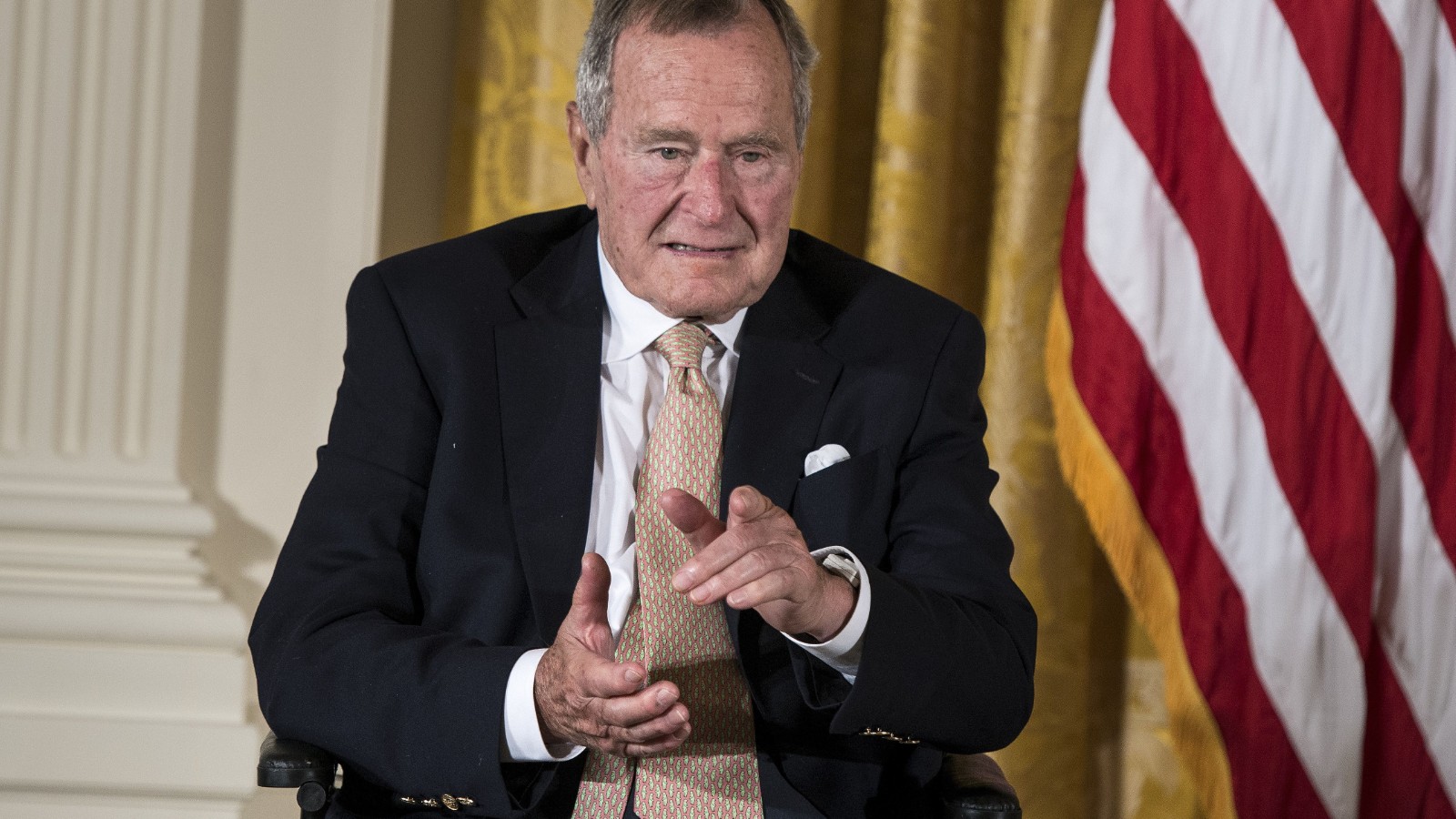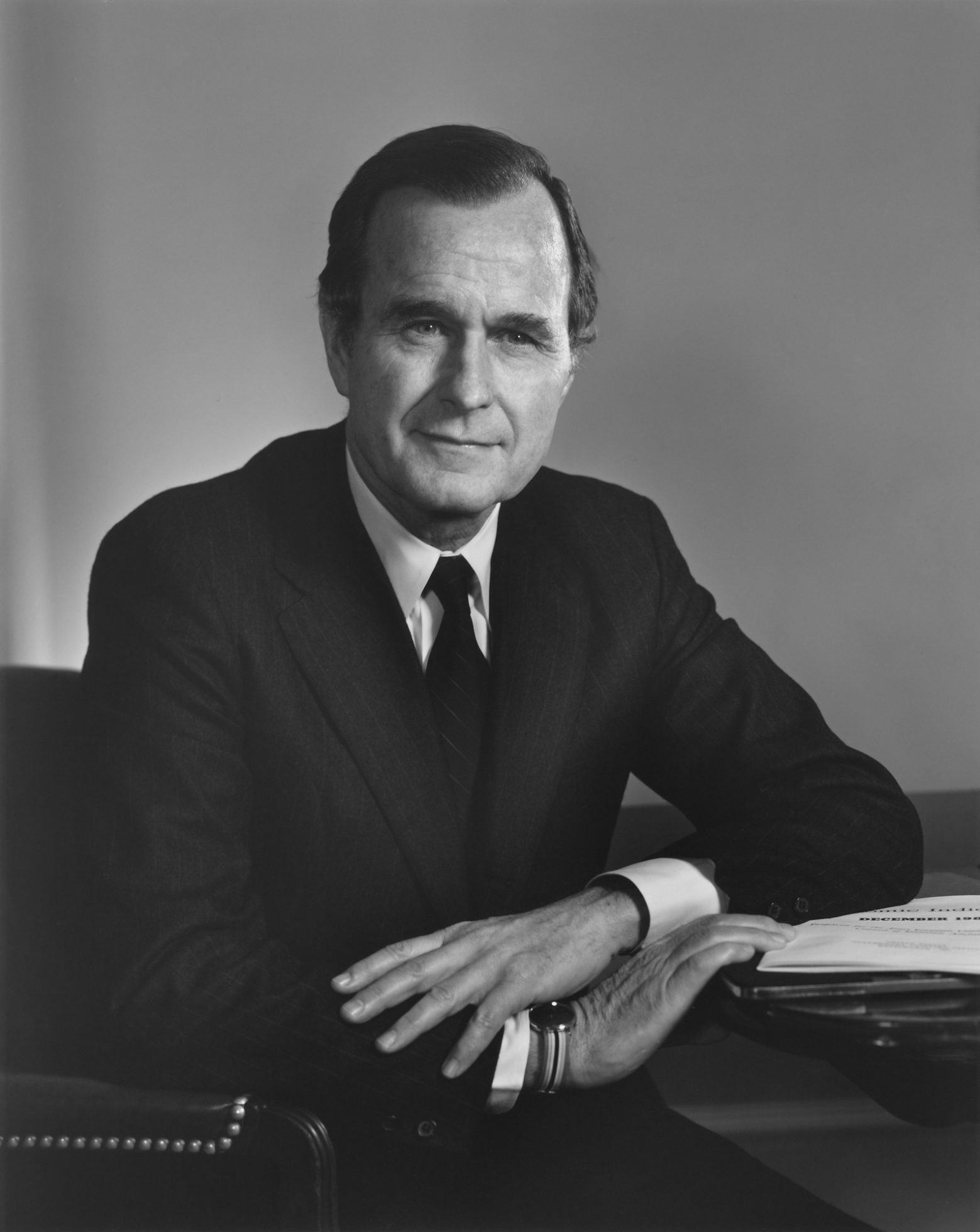George W Bush is a name that resonates deeply within the annals of American history. Whether you love him or hate him, there’s no denying his impact on global politics, domestic policies, and the trajectory of the United States in the 21st century. From his rise to power in 2000 to the controversies surrounding his presidency, Bush’s tenure shaped an era that still echoes today. So buckle up, because we’re about to take a deep dive into the man behind the headlines.
When people talk about George W Bush, they’re not just talking about a president. They’re discussing a figure who became synonymous with some of the most pivotal moments in modern history—the 9/11 attacks, the War on Terror, tax cuts, education reform, and more. Love him or leave him, his decisions left an indelible mark on America and the world. This article isn’t just about facts; it’s about understanding the man, his motivations, and the legacy he left behind.
This journey will cover everything from his early life to his presidency, the controversies, and what he’s been up to since leaving office. Think of it as a crash course in all things George W Bush, packed with insights, stats, and some good ol’ fashioned storytelling. Let’s get started!
Read also:Hd Hub 2 The Ultimate Guide To Unlocking Highdefinition Entertainment
Table of Contents
- Biography of George W Bush
- Early Life and Education
- Political Career Before Presidency
- The Presidency of George W Bush
- Major Policies and Initiatives
- Controversies During His Presidency
- The War on Terror
- Economic Impact and Tax Cuts
- Legacy and Public Perception
- Life After Presidency
Biography of George W Bush
Before we dive into the meat of the matter, let’s paint a picture of who George W Bush really is. Born on July 6, 1946, in New Haven, Connecticut, George Walker Bush came from a family steeped in politics. His father, George H.W. Bush, served as the 41st President of the United States, making George W the first son of a sitting president to follow in his father’s footsteps. But let’s not get ahead of ourselves—there’s more to this story than just politics.
Quick Facts About George W Bush
| Full Name | George Walker Bush |
|---|---|
| Birthdate | July 6, 1946 |
| Birthplace | New Haven, Connecticut |
| Education | Bachelor’s Degree from Yale University, MBA from Harvard Business School |
| Spouse | Laura Lane Welch |
| Children | Barbara Pierce Bush, Jenna Bush Hager |
From growing up in Midland, Texas, to becoming a Yale graduate and later the Governor of Texas, George W Bush’s life has been anything but ordinary. But it’s not all about the accolades—there’s a human side to this story too. We’ll explore that next.
Early Life and Education
George W Bush didn’t exactly start out as the politician we know today. Growing up in Texas, he was your average kid—albeit one with a pretty impressive family tree. He attended Phillips Academy in Andover, Massachusetts, before heading to Yale for his undergrad degree. It was at Yale where he began to carve out his identity, joining the Delta Kappa Epsilon fraternity and earning a reputation as a bit of a prankster.
But don’t let the frat boy persona fool you. After Yale, George W Bush enrolled at Harvard Business School, earning an MBA and setting the stage for his future career. During this time, he also served in the Texas Air National Guard, though this decision would later spark controversy during his presidency.
Key Takeaways from His Early Years
- Born into a politically influential family
- Attended prestigious institutions like Yale and Harvard
- Served in the Texas Air National Guard
- Developed a strong network of connections that would serve him well later in life
Political Career Before Presidency
Before becoming the 43rd President of the United States, George W Bush cut his teeth in Texas politics. He first entered the political arena in 1994 when he ran for Governor of Texas. Against all odds, he won, defeating incumbent Ann Richards in a stunning upset. As governor, Bush focused on issues like education reform, welfare reform, and tort reform, laying the groundwork for his future presidential campaigns.
His time as governor wasn’t without its critics, but it was enough to establish him as a formidable political figure. By the late 1990s, whispers of a potential presidential run began to circulate, and the rest, as they say, is history.
Read also:Dwayne Wades Regretful Will Smith Comment A Closer Look At What Really Happened
Why Texas Was Crucial to His Political Development
- Provided a testing ground for his leadership style
- Allowed him to hone his messaging around conservative values
- Helped him build a loyal base of supporters
The Presidency of George W Bush
George W Bush’s presidency officially began on January 20, 2001, after a contentious election that saw him narrowly defeat Al Gore in one of the closest races in U.S. history. From day one, his administration faced challenges, but nothing could have prepared the nation for the events of September 11, 2001. The 9/11 attacks defined much of his first term, leading to the launch of the War on Terror and the invasion of Afghanistan.
Bush’s second term focused heavily on domestic issues, including tax cuts, Social Security reform, and the response to Hurricane Katrina. While some of his policies were wildly popular, others sparked intense debate and criticism.
Key Moments of His Presidency
- 9/11 Attacks and the War on Terror
- No Child Left Behind Act
- Tax Cuts and Economic Stimulus
- Hurricane Katrina Response
Major Policies and Initiatives
One of the hallmarks of George W Bush’s presidency was his focus on implementing sweeping policy changes. The No Child Left Behind Act aimed to improve education standards across the country, while his tax cuts sought to stimulate economic growth. However, these initiatives were not without their detractors.
On the international front, Bush’s administration was heavily involved in the Global War on Terror, which included the invasions of Afghanistan and Iraq. While these actions were initially supported by the American public, they later became points of contention as the wars dragged on.
Impact of Major Policies
- Improved education standards but faced criticism for its rigid approach
- Tax cuts boosted short-term economic growth but widened income inequality
- War on Terror reshaped global geopolitics but remains controversial
Controversies During His Presidency
No discussion of George W Bush would be complete without addressing the controversies that plagued his presidency. From the invasion of Iraq to the handling of Hurricane Katrina, his administration faced criticism from all sides. The intelligence used to justify the Iraq War was later found to be flawed, leading to widespread public distrust.
Hurricane Katrina further damaged his reputation when the federal response was deemed slow and inadequate. Despite these setbacks, Bush maintained a steadfast belief in his decisions, often citing them as necessary for national security.
Addressing Criticisms
- Intelligence failures in Iraq
- Hurricane Katrina response
- Growing income inequality
The War on Terror
The War on Terror became the defining issue of George W Bush’s presidency. Launched in response to the 9/11 attacks, it included military operations in Afghanistan and Iraq, as well as increased surveillance and security measures at home. While many initially supported these efforts, the prolonged nature of the conflicts and the human cost began to wear on the American public.
Bush’s administration also faced criticism for its use of enhanced interrogation techniques and the establishment of detention facilities like Guantanamo Bay. Despite these controversies, the War on Terror remains one of the most significant legacies of his presidency.
Economic Impact and Tax Cuts
George W Bush’s economic policies centered around tax cuts and deregulation. His administration implemented two major tax cuts during his presidency, aiming to stimulate economic growth and create jobs. While these measures did provide short-term relief, they also contributed to growing budget deficits and income inequality.
The 2008 financial crisis, which occurred during his second term, further complicated his economic legacy. Critics argue that his policies contributed to the conditions that led to the crash, while supporters point to his efforts to stabilize the economy during the crisis.
Legacy and Public Perception
George W Bush’s legacy is as polarizing as the man himself. To some, he’s a hero who stood firm in the face of terrorism. To others, he’s a figure whose decisions had far-reaching and often negative consequences. Regardless of where you stand, there’s no denying his impact on American politics and global affairs.
Public perception of Bush has evolved over time. While his approval ratings dipped during his presidency, they’ve rebounded somewhat in recent years as people reflect on his leadership in the wake of 9/11 and the challenges he faced.
Life After Presidency
Since leaving office in 2009, George W Bush has largely stepped away from the political spotlight. He’s dedicated much of his time to writing, painting, and philanthropy, including founding the George W. Bush Presidential Center. His memoir, "Decision Points," offers a candid look at his presidency and the decisions that shaped it.
Bush has also become an advocate for veterans and military families, working to improve their quality of life through various initiatives. Despite stepping back from politics, he remains a respected figure in many circles, remembered for his resilience and leadership during challenging times.
What’s Next for George W Bush?
While the future may hold new ventures, one thing is certain—George W Bush’s place in history is secure. Whether through his writings, his art, or his continued advocacy, he continues to influence the world around him.
Conclusion
In conclusion, George W Bush’s presidency was a defining chapter in American history. From the War on Terror to his domestic policies, his decisions shaped the world we live in today. While opinions on his leadership vary, there’s no denying his impact. So whether you’re a fan or a critic, take a moment to reflect on the man and his legacy.
We’d love to hear your thoughts! Leave a comment below, share this article with a friend, or check out some of our other pieces on pivotal moments in history. Until next time, keep learning and stay curious!


